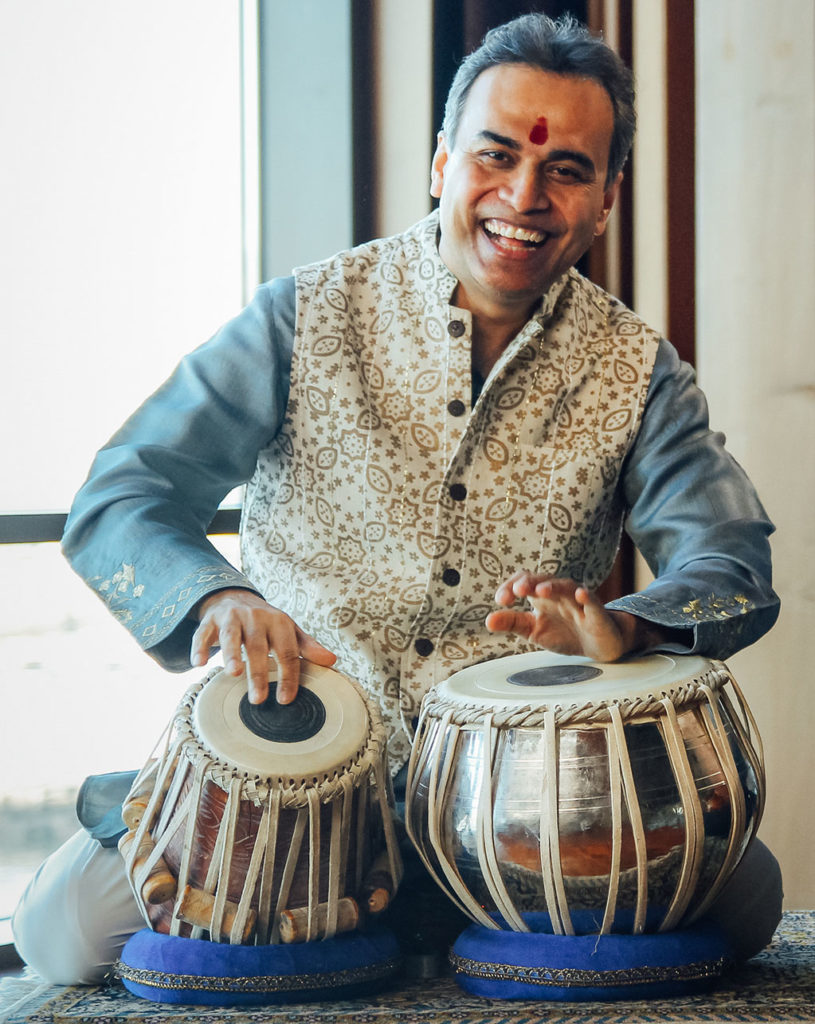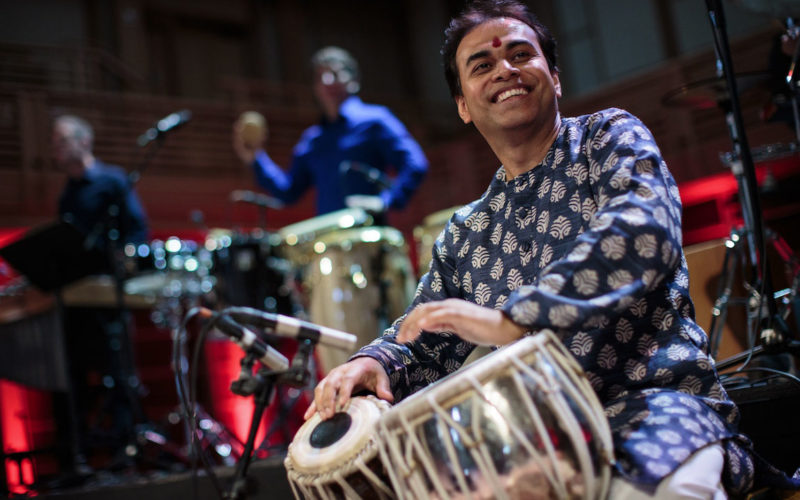BECCA MARTIN-BROWN
bmartin@nwaonline.com
Fans of orchestral music may not know the name of tabla master Sandeep Das or the music of Dinuk Wijeratne’s Tabla Concerto. But on Sept. 26, they will learn “that the tabla can speak – almost as if it has a tongue,” says Das, and that Wijeratne’s concerto is “one of the best works of the 21st century,” according to SoNA Maestro Paul Haas.
Das will perform with the Symphony Orchestra of Northwest Arkansas under Haas’ baton, adding the Walton Arts Center to other prestigious venues like Carnegie Hall and the Royal Albert Hall and the musicians of SoNA to a list that includes Yo-Yo Ma and Paquito D’Rivera.
“I know we’re going to be hearing a lot more about Dinuk Wijeratne in the years to come, [too],” says Haas, “and I’m thrilled to be able to bring this music to you.”
Das grew up in the small city of Patna, India.
“The way I got into music is a fun story,” he says. “One day, when I was about 8 years old, I was sent home from school with a note from my teacher. I had been disturbing the class by tapping on my desk, and when asked to stop, I started tapping my feet! They suggested that I be taken to a doctor.
“Luckily, I had a smart father, and instead of taking me to a doctor, he gifted me my first pair of tabla, and my lessons began that very night.”
Das was soon immersed in the Indian drumming tradition that dates back to the 1700s.
“My guru, Pt. Kishan Maharaj, was a legend of North Indian classical music in the same way Bach, Beethoven and Mozart are revered as legends of Western classical music,” he explains. “I learned tabla in the traditional Indian guru-shishya parampara, a system where the shishya, or student, lives with their guru (teacher) as a member of the household while they are learning.

“For 12 years, I lived with my guru in Banaras, an ancient Indian city known as a historical and contemporary center for intellectual, spiritual and artistic learning,” Das goes on. “Music was taught to me not just as an art form, but as a way of life. Guruji would teach when and however he pleased. I was even taught while sitting in the garden, riding horses and performing on stage with him at a concert!”
The turning point for Das came around the time he was finishing the equivalent of his undergraduate studies in India.
“I took an exam that qualified students for one of the top management training schools in our country,” he remembers. “To my surprise, I scored extremely well and received an invitation to attend. When the results came in, you had to decide that day itself if you were packing your bags to go.
“All of a sudden, I was faced with a huge decision — would I go to this institution that all but guaranteed a high-level management job, or did I want to pursue music, which had no assurance of a stable or successful life? Not knowing what to do, I called my father. His only answer was a very simple question: ‘What will make you happy?’
“In my heart, I knew what the answer was, and that was the beginning of the next chapter of my journey.”
Das says that until that point, he had been balancing both his formal academic education and his musical pursuits “side by side.”
“I decided that I would try focusing only on music for a year, and see what happened. If it didn’t work out, I would give up on music completely and fall back on my academics and a more conventional lifestyle,” he says. “With that in mind, I took my guru’s permission and moved to New Delhi. Initially, every couple of months, it would seem that I couldn’t go on, and that I would have to quit music and find a different career to pay my bills. But, as if God was testing me, just when I was close to quitting, some gig or concert would come up that would keep me going a little bit longer.
“Since I had 12 years of my guru’s solid musical training behind me, each concert I played left an impression that eventually resulted in more concerts,” Das adds. “Slowly, my name started moving not only in musicians’ and presenters’ mouths, but also in entire music circles on a local, state and eventually a national level. One thing led to the other, months led into months, years turned into years, and here I am.”
Das says the concerto he’ll play with SoNA is “one of my favorite pieces that has been written for the tabla. North Indian classical music, which is the tradition the tabla comes from, has a rich heritage of melody, rhythm and improvisation that is over 6,000 years old. The concerto is an amazing blend of both that world and the world of Western classical music.
“There are conversations happening between the tabla and the first violinist, the tabla and the drum set, and many others beside,” he describes. “Though most of the composition is fixed, it still gives me the amazing freedom to improvise, embellish and color the piece according to my inspiration in the moment. At the same time, it also leaves me responsibilities; I can’t just go crazy and play whatever I want! It is a delicate balance of improvising, reacting and responding to the orchestra’s voice as we move together in conversation with each other.
“If you want to find out what I mean, you should come to the concert,” Das concludes. “Beyond that, I have always found great joy in sharing my instrument and my music with others, and my hope is that everyone will enjoy catching a glimpse of a very unique and diverse musical tradition which they might not have encountered before.”
__
FAQ
Symphony of NW Arkansas:
‘Continental Connections’
WHEN — 7:30 p.m. Feb. 26
WHERE — Walton Arts Center in Fayetteville
COST — $35-$57
INFO — sonamusic.org
FYI — The concert also includes Grażyna Bacewicz’s Overture for Orchestra and Schumann’s Symphony No. 2.










